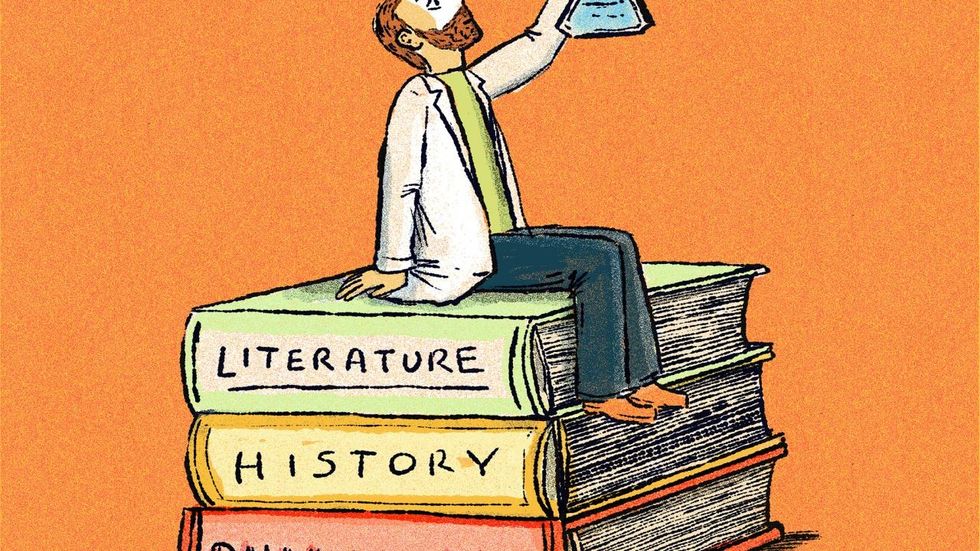What is the role of the humanities at Marquette?
I've always considered the humanities to be somewhat of a guiding light in the mess of our world today, and in generally in my own life. Even in my younger years, I always found myself turning to one of the books piled on my nightstand when everything else just became too much, gingerly turning the pages as I stayed up way past my bedtime and got lost in the worlds of L. Frank Baum and J.K. Rowling, Madeleine L'Engle and Roald Dahl. To this day I still find myself turning to literature as often as I can when there's a fork in the road or a stray twig cutting across the windshield, steering out of the hard sciences and into the humanities my freshman year with a second-semester switch from biology to English.
Contrary to popular opinion, the craziest part about this transition was not the strangeness of the jump from something so left-brained, so straightforward into something much more right-brained and abstract, but how much I grew in my abilities to answer some of life's seemingly "unanswerable" questions – those related to where we came from and who we are. I found myself straying away from the black-and-white answers my short time with the life sciences gave me, unable to believe that there was just one answer to the age-old question of how humanity developed into what it is today when so many different cultures and cohorts exist; I refuse to look at the evolution of the human experience as anything but a tapestry of a million threads spun from the colorful lives of individuals from every identity and every background, every sense and every story. I owe this worldview all to the slow-and-steady integration of humanities courses into my college curriculum, something that unfortunately isn't possible for more than half of Marquette University's current freshman class (graduating in 2023), with around 55% of them entering into a STEM-based field at a university with a declining focus in the liberal arts and humanities.
I firmly believe that the role of the humanities in any educational environment to be integral to properly preparing students for all the twists and turns that lie ahead, holistically providing them with a strong foundation in how to understand the complicated nature of both the natural and societal world. As discussed earlier, the humanities are much like a road map in navigating all the different ways one can define the human experience, helping us to carry the weight of our own existence on already-sagging shoulders through the exploration of perspectives stretching far beyond our own and the study of everything from the Bible to Bruce Springsteen. In other words, studying the humanities is crucial to understanding what it means to be human, and to successfully go about our lives in a purposeful, reflective manner.
This is why they are necessary to any kind of college curriculum, or any institution whose mission is to breed the next generation of the world's presidents and politicians, leaders and listeners.
Yet, so many universities (Marquette included) seem to be straying away from a humanities-based education, with the number of philosophy and theology core requirements declining from class to class. I am disheartened by how Marquette continues to advertise itself as a place where students can learn how to better "be the difference" in the world around them yet do things like take funding away from the College or Arts and Sciences and disseminate the College of Education entirely; I am angered by the idea of the "Marquette Bubble" and how little we have done to effectively "pop" it. Ross Douthat, opinion columnist with the New York Times, laments that institutions have stigmatized the possibility of the humanities in relation with the possibility of the sciences as a "false choice between 'dead white males' and 'we don't transmit values'" (2020), and wrongfully market the humanities as a way to better "learn how to think" instead of something with substance that's just as valuable as chemistry and mathematics. To put it quite simply, things need to change, and soon – as the world we live in becomes increasingly polarized and littered with conflict, the skillsets developed from studying the humanities will be needed in unpredictable (and possibly extreme) ways.








 The minimum wage is not a living wage.
StableDiffusion
The minimum wage is not a living wage.
StableDiffusion
 influential nations
StableDiffusion
influential nations
StableDiffusion





